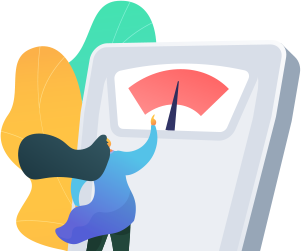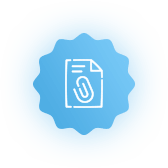Our Perfect Essay Writers Are Always at Your Service!

Social Media Role in Kuwaitis’ Political Knowledge
Introduction
During the last decades, social media has received much attention from the public and governments all over the world. It has become an influential factor in a shift towards an establishment of the citizen power (Seib, 2012). Social networking services, such as Facebook, Twitter, or LinkedIn, have developed an effective mechanism that can bring individuals together in order to solve a common goal. Nowadays, citizens of every state have become aware of how to use social networking services for organizing and facilitating the communication and interaction. Social media has a potential to promote a greater engagement of citizens in public affairs. As a result, it has become an important instrument in citizens’ hands to organize movements and mobilize people in the streets. It has become an effective tool of a protest against dictators of the Middle East and North Africa. Moreover, social media has become a driving force of social movements all over the world (Choudhary, Hendrix, Lee, Palsetia & Liao, 2012).
The increase in a number of social media users in Kuwait has resulted in significant changes in the political knowledge. For example, according to the reports on the amount of Twitter users in the region of the Middle East, Kuwait generates up to 1/3 of all Tweet volume among the countries of the region. Kuwait provides approximately 11,100,000 tweets. Moreover, from January to April of 2011, about 165,420 of the new Facebook users appeared in Kuwait (Kurma, 2010). The citizens of Kuwait use such networks as Facebook and Twitter as a perfect platform of communication with friends and sharing information. They also trust more social media services than the traditional types. Moreover, a number of political events aimed at combating the government’s corruption were organized with the help of social media services. Thus, participation in social networking services has increased a social participation and political knowledge.
Why us?

Expert authors with academic degrees

Papers in any format: MLA, APA, Oxford, Harvard

24/7 livecustomer support

Only authentic papers plagiarism and AI free

Absolute confidentiality

Decent prices and substantial discounts
Our custom writing service is your shortest way to academic success!
Order NowStatement of Problem
Recently, the usage of social networking services in Kuwait has increased. Moreover, Kuwaiti people demonstrate a bigger engagement into politics than any other fields. In the Middle East, social media has played a key role in organizing revolutions and motivating people in the streets. It has influenced the development of the political knowledge among the population of the region. As a result, the study will investigate the role of social media in Kuwait’s political knowledge.
Social Media
A concept of social media is determined as a process of interaction among people within virtual communities and networks where they can create, share and exchange ideas, thoughts, and information (Ahlqvist, Back, Halonen, & Heinonen, 2008). According to Kaplan and Haenlein, social media is: “a group of Internet-based applications that build on the ideological and technological foundations of Web 2.0 and that allow the creation and exchange of user-generated content” (Kaplan & Haenlein, 2010).
Social media is based on mobile and web technologies. It creates a powerful tool for individuals and whole communities to post, share, and spread the particular content. As a result, social media can influence the communication among individuals and determine social interactions as well as improve the political knowledge (Kietzmann & Hermkens, 2011).
The concept of social media provides transformational tools of communication among the citizens. Indeed, social networking sites, such as Facebook and Twitter, can be characterized by the public nature of their interconnectivity (Boyd & Ellison, 2008). As a result, social media has introduced an opportunity for people to create a public profile, organize and develop interaction (Noor Al-Deen & Hendricks, 2013). Thus, social media has a direct impact on the political knowledge of the community. However, by themselves technologies do not do anything in order to incorporate citizens into the political life of the country. As a result, social media cannot create a civil society or influence the development of political knowledge. At the same time, in the non-liberal countries, social media can support and reinforce political innovation and participation of citizens (Anduiza, Anduiza Perea, Kensen, & Jorba, 2012).
Writing Quality
Make the right choice and get the perfect quality papers
Standard value
(Standard value) The task is being completed by one of our professional writers according to the deadline specified - we make sure the script is handled by an appropriate specialist of the particular field of study.

Premium value
(+10% of the order total amount) This option is for clients who want their order to be quickly assigned to one of our professional writers. The premium quality also means that the final paper will be a subject to additional plagiarism checks, and the client will receive a PDF file with a detailed plagiarism report created by our professional editors.

Supreme value
(+15% of the order total amount) Apart from a “Detailed Plagiarism Check” option, our online agents will try to urgently assign a writer among the top 30 best company writers. Your order becomes of the highest priority for us. If you want your order to be our TOP priority, select this option.

During the recent years, the number of social networking services has significantly increased. Among the most popular ones, there are Facebook, Twitter, LinkedIn, Google+, My Space, YouTube, Instagram, and others. A social networking service is defined as an online service, a platform or a site that is based on the establishing and development of social relations and interactions among people that have the common interests, activities or other connections. Social networking service usually consists of the network of users’ profiles, different social links, and a majority of other services. Social media provides an opportunity for users to create a public profile and share ideas, posts, and events (Furht, 2010). Social networking services are web-based. As a result, they enable people to interact over the Internet. Thus, there is a possibility for people to connect all over the world through the e-mail usage or instant messaging. Moreover, during the recent years, social media has become extremely dynamic, as it incorporates the new information and communication tools, such as mobile connectivity.
Among the most popular in Kuwait social networking services, there are Facebook and Twitter. Facebook allows its users to create a personal profile and exchange messages and information within a system. Moreover, users, who share common interests, may join common interests’ groups. It is an effective way of interaction and voicing opinions (Sullivan, 2008). Thus, Facebook creates a perfect mechanism for increasing the political knowledge. For example, in 2011, Facebook has become a driving force of Egyptian revolution (Sutter, 2011). The creation of an event on Facebook allowed gathering a peaceful demonstration on January 25. Facebook was used as a tool for connecting all protesters in Tunisia. It provides an opportunity for people all over the world to access and share the information as well as to make the world more open and connected.
Twitter is another social networking service. It provides users with an opportunity to send and receive short 140-character text messages. Thus, it has become an effective tool of the communication, learning, spreading the information, and promoting interactions among citizens (Grosseck & Holotescu, 2008). In Egypt, Tunisia and Yemen, Twitter was used to organize and coordinate rising actions and protests. Twitter has become an essential part of establishing the democratic movements in the Middle East and North Africa.
Our Lifetime Discounts:

Exclusive savings! Save 25% on your ORDER
Get 15% OFF your FIRST ORDER (with the code perfect15) + 10% OFF every order by receiving 300 words/page instead of 275 words/page
As a result, social networking services, such as Facebook and Twitter, are responsible for reinforcing the political knowledge among citizens of the Middle East and North Africa. Arab spring has demonstrated how young people had engaged into activism through Facebook and Twitter. At the same time, Twitter users are more active online than Facebook community (Noor Al-Deen, & Hendricks, 2011). However, both social networking services have used network societies in order to raise the political awareness of the population of the region.
Political Knowledge
A lot of scientists consider public to remain ignorant to the political issues. As a result, the concept of political knowledge was greatly criticized (Lupia & McCubbins, 1998; Gibson & Caldeira, 2009). Political knowledge was associated with the representation of the citizens’ general knowledge of politics (Boudreau & Lupia, 2011). For a certain period, political knowledge was considered to be an essential part of a public opinion. There are many definitions of the concept of political knowledge. For example, it is defined as a level of knowledge of a politically centered conversation (Dow, 2009).
Political knowledge has been also defined as the amount of factual information about politics being stored in a long-term memory (Delli Carpini & Keeter, 1996). Thus, it is a particular feature that characterizes citizens. While all scholars agree that it is an essential part of any society, not everyone agrees on its extent. For example, Milner (2007) addresses the whole political system. Prior and Lupia (2008) associate the political knowledge with election campaigns. Some scholars state that it has to be based on some events and tendencies in a political sphere (Garramone & Atkin, 2008). Other scientists consider that it is identified as the awareness about main political figures (Dow, 2009). At the same time, it is difficult to measure political knowledge of citizens.
However, each of the definition has a common statement. Political knowledge reflects some information about politics and governments, the perception by the community of the political situation in the country. Thus, it is a narrower concept than political awareness, or political expertise. It has always been a key concept of democratic theory. Thus, since the times of Plato, scholars have debated if the public possesses the enough amount of the information in order to play a key role in the governance of the society (Marquez, 2006).

VIP Services
Try our VIP services or become our VIP client, benefit from the incredible opportunity at a very reasonable price. Limited time offer – order our VIP package with a 30% discount

Political knowledge is also determined by an ability and motivation of individuals to learn about politics (Luskin, 1990). As a result, the development of the Internet technologies and a spread of social media facilitate the process of political engagement of citizens into the state’s affairs.
Social Media and Arab Spring
Before the Arab Spring, social media in the Middle East and North African countries was marginal, alternative, and elitist. The role of social media and its impact on the political knowledge of the population was minimal because of the insignificant number of the Internet users. However, the events of 2011 have demonstrated how social media had managed to reach the forefront. Facebook, Twitter, and other weblogs mobilized the population and facilitated the revolutions in Tunisia, Egypt, Yemen, Libya, and other countries of the region.
During the uprisings, the social media usage in the region has more than doubled. It demonstrates that social networking services, including Facebook and Twitter, were used for the mobilization of the population, increasing the awareness of citizens regarding the political situation and further actions. Young people organized the protests in various Arab countries by using the Internet technologies to spread the word of uprising not only within Arab countries, but all over the world. As a result, by the April 2011, the number of Facebook users in the Middle East and North Africa had reached almost 28 million people. The visual media was spread all over the Internet in order to demonstrate the particular moments of the uprisings, show the history of countries, and the activities of the governments that had led to the revolutions.
In Egypt, Tunisia, Yemen, and Kuwait, the protests were mainly organized with the help of social media, including Facebook and Twitter. According to the activists of Arab Spring, they used Facebook to plan and schedule the protests. Twitter was a main tool of coordinating an action among the participants of demonstrations and protests. Other social networking services, such as YouTube, were used in order to demonstrate to the international community the situation i the Arab world. Technology and social media has become an integral part of the distribution of public information. Social media was an essential part of overthrowing of oppressors and the establishment of democratic movements in the region. Indeed, according to Hussein Amin, a professor of mass communications at the American University in Cairo, social networking services, “for the first time provided activists with an opportunity to quickly disseminate information while bypassing government restriction” (Adi, 2014). Thus, social media has become a driving force in the forming of political knowledge of the Arabian population.
Our Free Features
Our agency is the one which can provide you with effective
academic writing projects. There are many features that are offered by our agency for free,
namely:

A title page

Table of contents

An abstract

A reference page /
bibliography

An outline
(on request)
Kuwait
The State of Kuwait is an Arab country situated in the Middle East region. It borders with Iraq to the north and Saudi Arabia to the south. The area of the country is 17,820 square kilometers. The number of the population is about 2.6 million (O’Shea & Spilling, 2010). During the eighteenth and nineteenth centuries, Kuwait was an influential actor of the international relations. It was a center of commerce and trade. For example, Kuwait was responsible for ensuring the trade between India and the Middle East. However, the importance of the country on the regional stage reduced in the twentieth century. By 1934, Kuwait had been no longer responsible for the long-distance trade operations. Numerous blockades have devastated the economy of the country. Nevertheless, Kuwait possesses the fifth largest reserves of the oil in the world. As a result, Kuwait has become one of the world’s richest countries per capita. According to the World Bank reports, Kuwait is determined as a high income economy.
Kuwait is a constitutional monarchy with a strong emir. It has a parliamentary system of the government. The directly elected parliament in Kuwait is one of the oldest institutions among Arab countries. The Constitution of the country guarantees a freedom of expression. For example, the Articles 36 and 37 state:
Freedom of opinion and scientific research shall be guaranteed. Every person shall have the right to express and propagate his opinion verbally, in writing or otherwise, in accordance with the conditions and procedures specified by law. Freedom of the press, printing and publishing shall be guaranteed in accordance with the conditions and manner specified by law (The Constitution of the State Kuwait, 1962).
Kuwait is often described as the most liberal country in the Middle East region. Moreover, Kuwait is known for as the world’s freest countries. For example, according to the reports of Reporters without Borders, Kuwait was ranked number 91 of 180 countries. It has become the second freest country in freedom of its press after Israel (O’Shea & Spilling, 2010). As a result, Kuwaiti journalists have a bigger freedom of speech than the majority of other Arab journalists. Since 2011, the role of social media in responding the events and organizing meetings and protests has also increased. As a result, many observers have noticed that Kuwaiti media is experiencing self-censorship, intimidation, and pressure from the government.
Much of the media in Kuwait is owned by the state. However, there are several private newspapers. All of them are under the supervision of the Ministry of Communications. The biggest Kuwaiti media house – Kuwait News Agency – is also state-owned. The media policy in the country is regulated by the Ministry of Information. The Ministry is responsible for censoring books, films, and other foreign materials that can offend Islamic or Arab traditions (Rugh, 2004). There are more than 70 magazines and newspapers, which are published in Kuwait. The percentage of Kuwaiti people who read newspapers is much higher than in the United States. Thus, the population of the country is interested in the social and political life of the country as well as in the international relations.
However, the freedom and expression of the media was revised by the Press and Publicans Law of 2006. It replaced the law of 1961 and introduced a bigger number of prohibitions for journalists. It was motivated by the fact that it is difficult to ensure the freedom of expression while protecting other freedoms of the population. As a result, journalists cannot write materials that insult Islam. The law also prohibits criticizing the emir, disclosing the secret information and calling for the overthrow of the government. It is also prohibited to cause harm to the relations between Kuwait and the Arab countries. As a result, any report concerning the atrocities and violations of human rights in Egypt, Syria, and Libya can be considered as a violation of law. Citizens can also introduce criminal charges against journalists, who violate the law (Press and Publications Law, 2006). Thus, in 2010, there were about 600 violations of the media law.
In 2012, there were approximately 1,963,565 Internet users in Kuwait. It is more than 74 percent of the population. The increase in the number of the Internet users is often determined by the aspiration of Kuwait’s citizens to take part in the political and social life of the country. At the same time, the development of the Internet and modern technologies provides people with efficient platforms for communication and sharing information, such as social networking services. Indeed, Kuwait generates up to 1/3 of all Tweet volume among the Middle East countries. The Arab Spring has also led to an increase among Facebook users. Thus, from the January to April of 2011, about 165,420 of the new Facebook users had appeared in Kuwait (Kurma, 2010). Social media in Kuwait was used to mobilize the population in such events like Marches Dignity karamat watan and Storming Parliament. Moreover, the Twitter account under the name @karamatwatan was responsible for organizing events and gathering people into marches. The stateless community of Kuwait, called Bedoon, organized a march in order to ensure their rights to citizenship. It had been inspired by the Arab Spring, Approximately, 120,000 members of Bedoon community in Kuwait do not have the right to receive the education, healthcare services, and employment. As a result, the representatives of the community used social media as a means of communication among activists and for organizing protests. They also gained a great number of sympathizers from foreign countries. Twitter was used to disclose violations against the community that could not be shown by the mainstream media. An anonymous account called this as “A Nation’s Cry” was used to organize the protests of the community. Thus, social media has played a key role in strengthening the political knowledge of Kuwaiti population.
How it works

1. Fill the Order Form
Please, provide your personal information including valid email address and telephone number. And also all information and instructions to be followed by the writer.

2. Pay for Your Paper
Provide the payment by using any convenient payment system. After submitting the payment – the writer will start writing. The status of your order will be changed to “in progress.”

3. Control the Writing Process
Communicate with the writer, coordinate the process Watch as the writer create a paper according to details, chat with the writer for better understanding.

4. Plagiarism Checking
The completed work is scanned for plagiarism, using our premier software. We insist that every delivered paper is original!

5. Get Your Paper
Log in to your account - download your paper.

6. Give Us Feedback!
Let us know what you think of your paper once you have reviewed it. Your participation enables us to improve our operational processes. We really value your feedback and/or any comments you have.
1. Fill the Order Form
Please, provide your personal information including valid email address and telephone number. And also all information and instructions to be followed by the writer.
Next step2. Pay for Your Paper
Provide the payment by using any convenient payment system. After submitting the payment – the writer will start writing. The status of your order will be changed to “in progress.”
Next step3. Control the Writing Process
Communicate with the writer, coordinate the process Watch as the writer create a paper according to details, chat with the writer for better understanding.
Next step4. Plagiarism Checking
The completed work is scanned for plagiarism, using our premier software. We insist that every delivered paper is original!
Next step6. Give Us Feedback!
Let us know what you think of your paper once you have reviewed it. Your participation enables us to improve our operational processes. We really value your feedback and/or any comments you have.
Next stepFindings
The events of the Arab Spring have demonstrated that a considerable amount of attention of the population had been focused on the concept of political engagement, democracy, and collective activism. At the same time, social media has become a driving force of awakening the political knowledge and necessity to establish the new governments in the Middle East and North Africa.
Indeed, there is a shift in the usage of the social media in the region. For example, before the revolution, social media was used by citizens for social purposes as well as the political ones. The scope of the media usage in the region has also increased. It included a civic engagement, the political knowledge and engagement, business entrepreneurial activities, and social changes. It has contributed to a process of the development of more transparent models of governance. Social media had been merely used as a tool of entertainment by the citizens of Kuwait, Egypt, Libya, and other countries. Nowadays, it encloses every aspect of the life of the Arab population, affects the way of interaction between people, determines business activities, and impacts the civil movements. Moreover, there is an obvious increase in the number of social media users in Arab states. For example, the amount of the Internet usage in the region has reached almost 28 million people. In 2012, there were about 1,963,565 of Internet users in Kuwait. It is more than 74 percent of the population. The increase in the number of the Internet usage is often determined by the aspiration of Kuwaiti citizens to take part in the political and social life of the country. At the same time, the development of the Internet and modern technologies provides people with efficient platforms for their communication and sharing information, such as social networking services. As a result, Kuwaiti citizens use Facebook and Twitter, as the efficient platforms of communication with their friends as well as for sharing information. They also trust more social media services than the traditional types of media. Moreover, a number of political events aimed at combating the government corruption have been organized with the help of social media services. Thus, the participation in social networking services has increased a social participation and political knowledge.
